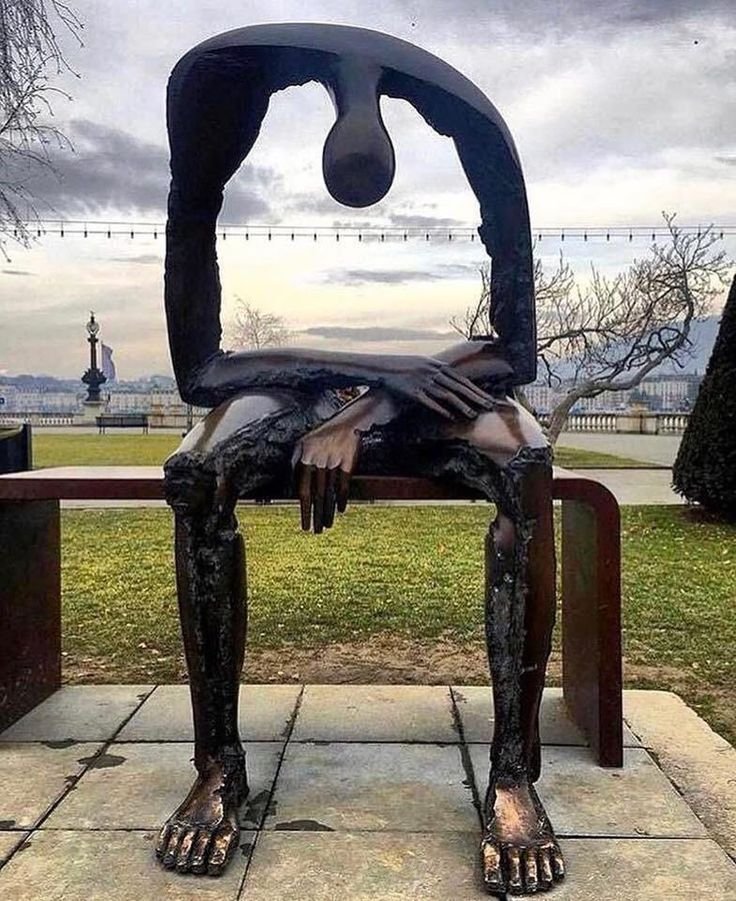The Psychological impact of Loneliness on Mental Wellbeing
Loneliness is a silent storm that insidiously chips away at our well-being. It is the feeling of being alone, often in the midst of people. It can deeply impact our mental health, leading to severe emotional distress and long-term psychological harm. Loneliness can be deadly. Let’s explore the devastating effects of loneliness on mental health and why we should never choose isolation as an option. Loneliness is not reserved for the old alone. Infact, recent studies show that “young adults have the highest rates of loneliness, with 27% of people ages 19 to 29 reporting feeling very or fairly lonely” - (CNN, The loneliness epidemic: Nearly 1 in 4 adults feel lonely, new survey finds, 24th October 2024).
HOW LONELINESS AFFECTS MENTAL HEALTH
Loneliness is not just an emotional state, it can be physically painful, too. Studies have shown that chronic loneliness can increase stress levels, weaken the immune system, and lead to depression and anxiety. When people feel lonely, their minds begin to spiral into feelings of worthlessness and despair, which can result in a decline in overall mental health. Left unchecked, loneliness can trigger deeper issues like social anxiety, fear of rejection, and even suicidal thoughts.
WHY WE SHOULDN'T CHOOSE TO BE LONELY
Choosing to isolate yourself can be a dangerous coping mechanism. While solitude can sometimes be healthy for self-reflection, prolonged loneliness can turn into an emotional prison. When we isolate ourselves, we deny the human need for connection, warmth, and support, which are vital for emotional well-being. Loneliness makes us vulnerable, leading to negative thoughts that can harm our mental health. It's important to remember that no one thrives in isolation; we all need meaningful relationships to stay mentally strong.
WHY ARE MOST PEOPLE LONELY?
Many people find themselves in lonely situations due to various reasons:
SOCIAL MEDIA ILLUSION:
In today’s digital world, people often replace real human connections with social media interactions, which can deepen feelings of loneliness.
FEAR OF REJECTION:
Some avoid relationships or connections because they fear being judged or rejected by others.
PAST TRAUMA:
People who have been hurt or betrayed in the past may struggle to trust others, choosing to remain emotionally distant.
MENTAL HEALTH STRUGGLES:
Anxiety, depression, or other mental health issues can push people away from social settings, making it difficult to connect with others.
HOW TO OVERCOME LONELINESS
Overcoming loneliness requires taking steps toward reconnection:
REACH OUT:
Don’t be afraid to reach out to friends or family, even if it’s just for a small chat. Sometimes, a simple conversation can help break the feeling of isolation.
JOIN A COMMUNITY:
Engage in activities that interest you, whether it’s joining a club, attending social events, or participating in group activities. Being around others can help build a sense of belonging.
PRACTICE SELF COMPASSION:
Be kind to yourself and understand that loneliness is a part of the human experience. Remind yourself that everyone feels lonely at times, and it’s okay to seek help.
PROFESSIONAL HELP:
If loneliness is overwhelming, consider speaking to a therapist or counsellor who can guide you through coping mechanisms and help rebuild your emotional connections.
SHOW LOVE TO PEOPLE:
You never know who is lonely. The chatterbox in a group might be the most lonely in the group.
BREAKING FREE FROM LONELINESS
No one deserves to suffer in silence. Loneliness can feel like a deep pit, but the key to climbing out is reaching for the hands of those around you. Real human connection (not social media), is powerful and healing, and with effort and patience, you can move away from the shadow of loneliness. Choose connection, not isolation; it's a lifeline for your mental health. #treasureyourmentalhealth
If things are getting out of hand, please call us on +234 814 831 8965 or send us an Email at: info@copeandlive.foundation
